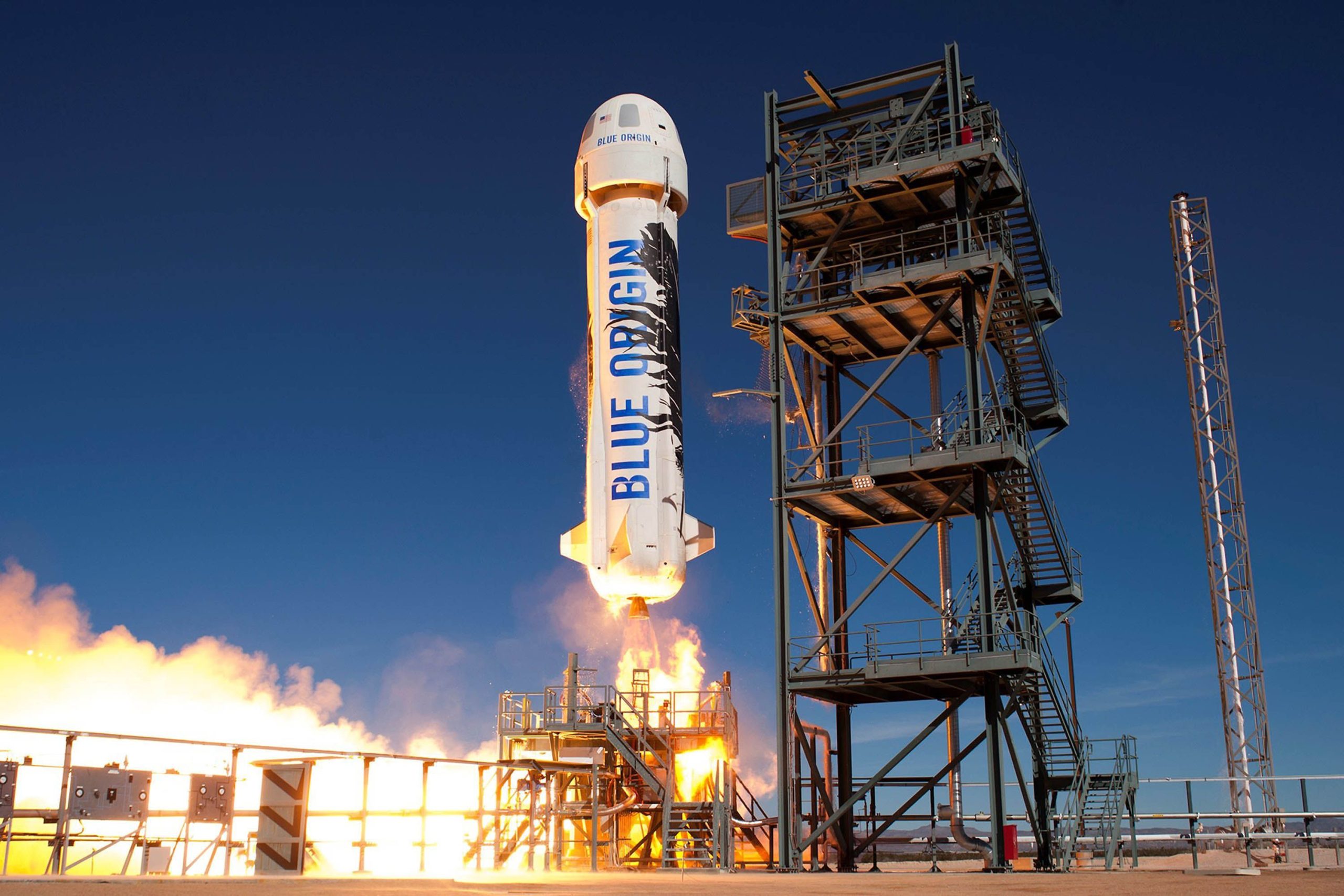Olivia Munn Questions Blue Origin Trip Featuring Katy Perry & Gayle King, Calls It Wasteful
Olivia Munn has raised critical questions about the necessity of the upcoming Blue Origin space expedition featuring high-profile personalities such as Katy Perry and Gayle King. She doubts the wisdom of spending enormous amounts on space travel when pressing issues on Earth—like hunger, education, and healthcare—demand urgent attention. Her remarks invite us to reflect on whether the promise of scientific and technological advancements justifies the significant costs involved. This perspective urges a balanced review of how resources are allocated between exploring new frontiers and solving everyday challenges.
Summary
- Criticism: Munn questions if the expensive space flight is the best use of resources at a time when many face everyday hardships.
- Celebrity Participation: The mission includes notable figures such as Katy Perry, Gayle King, and Lauren Sánchez, elevating media and public interest.
- Resource Allocation: Concerns are raised about the allocation of funds; critics suggest that money spent on space exploration might better address urgent needs on Earth.
- Media Spotlight: The event has garnered extensive media coverage through platforms like Elle Magazine.
- Historic Yet Contentious: While marking the first all-female crew for Blue Origin, the mission sparks debate over its true societal impact.
- Public Debate: Mixed opinions abound, with advocates praising technological progress and critics warning against misdirected priorities.
Article Body
The announcement of an all-female space expedition by Blue Origin has stirred up intense debate across media outlets and public discussions. The upcoming mission, featuring a blend of celebrities and seasoned professionals, has captured the public’s imagination. However, Olivia Munn’s outspoken criticism challenges the notion that such space endeavors are necessary in today’s world. She suggests that while space exploration often symbolizes progress and innovation, it should not come at the expense of addressing urgent, terrestrial issues.
Context of the Space Mission
Blue Origin, founded by Jeff Bezos, has steadily advanced toward its goal of space tourism and exploration with its New Shepard spacecraft. This latest mission, scheduled to cross the Kármán line—a boundary located 62 miles above Earth—marks the 11th manned journey and the first to include an all-female crew. The crew lineup is diverse; it merges the allure of celebrity with the gravitas of scientific expertise. Despite the achievement, critics like Munn point out that high-profile participation can sometimes overshadow deeper, more consequential discussions about resource management and societal priorities.
Munn’s comments reflect a broader concern: the immense financial and material costs attached to space travel. Her argument suggests that every dollar spent on rocket fuel and luxury space tourism could potentially alleviate critical issues such as poverty and food insecurity back home. Even as technological advancements herald promising prospects for the future, the immediate needs of many people around the world remain unmet.
Celebrity Influence and Media Impact
The intermingling of celebrity culture with space travel has redefined public expectations and media narratives. While a mission that features well-known figures like Katy Perry and Gayle King attracts considerable attention, it also risks turning scientific exploration into a spectacle. The media often frames such events as glamorous and historic, as seen in prominent publications like Elle Magazine. However, Munn’s critique highlights that, beneath the glitter, fundamental questions about necessity and ethics remain unresolved.
The role of media is crucial in shaping perceptions. Positive coverage can boost public interest in STEM fields and inspire future generations. On the other hand, if the public perceives that space missions serve as expensive vanity projects, support for broader scientific endeavors may dwindle. Munn’s candid questions force us to reconsider what success means in the context of exploration: is it measured only in technological milestones, or also in tangible benefits to society?

Mission Participants and Their Roles
The mission’s participants come from varied backgrounds, each contributing a unique perspective. The following table summarizes the key members and their anticipated roles:
| Participant | Role |
|---|---|
| Katy Perry | Public figure and media liaison |
| Gayle King | Television host and public ambassador |
| Lauren Sánchez | Celebrity participant and supporter |
| Aisha Bowe | Former NASA rocket scientist |
| Amanda Nguyen | Research scientist and innovator |
| Kerianne Flynn | Film producer and creative contributor |
Financial and Ethical Considerations
A central point in the criticism by Munn is the financial burden that such missions impose. Critics argue that the heavy investment in space travel diverts funds away from solutions that could address more immediate concerns. The enormous expense associated with rocket launches, advanced research, and exclusive travel experiences raises ethical questions. Is it appropriate to spend millions on a luxury that few can access when millions struggle with daily needs?
Economic debates over space funding have persisted over the years. Proponents argue that the returns on investment—such as technological spin-offs and economic growth—justify the cost. Yet, Munn’s perspective underscores the importance of ensuring that such investments translate into benefits that reach a broader segment of society. In her view, the economic disparity displayed by funding choices might widen social inequities if not carefully managed.
Benefits of Space Exploration
Despite the criticism, the history of space exploration is replete with significant achievements that have transformed everyday life. Innovations born from space research include satellite technology, weather forecasting improvements, and advances in materials science. The following table illustrates some of the key benefits associated with space exploration:
| Benefit | Description |
|---|---|
| Technological Innovation | Breakthroughs that spur new inventions and industrial growth |
| Global Communication | Enhanced connectivity via satellites and telecommunications |
| Scientific Discovery | Deeper understanding of space, earth sciences, and astronomy |
| Economic Development | Creation of jobs and stimulation of high-tech industries |
Public reaction to the Blue Origin mission has been mixed. Many supporters view the mission as a turning point, celebrating the historic nature of an all-female crew and the new narratives it brings to the field of space travel. Others, echoing Munn’s concerns, see it as a luxurious detour from more pressing global problems.
Social media platforms have become arenas where opinions are passionately exchanged. The debate invites us to think about what we value most as a society and how we prioritize different forms of progress. Moving forward, it is essential for policy-makers, investors, and the public to engage in informed dialogue about the role of space exploration in a world with so many immediate needs.
Technological Advances Versus Societal Needs
Using new technology while meeting people’s daily needs causes problems when making rules. Space seems appealing since it offers new places and new ideas. But, as Munn said, getting better as a society should not mean ignoring the well-being of regular people. This discussion shows the need to do things in a way that considers both science projects and helping people. This way, new technologies can improve life for everyone.
References
For further details and insights on the mission and its media coverage, please explore the following resources:
Elle Magazine
YouTube Interview

